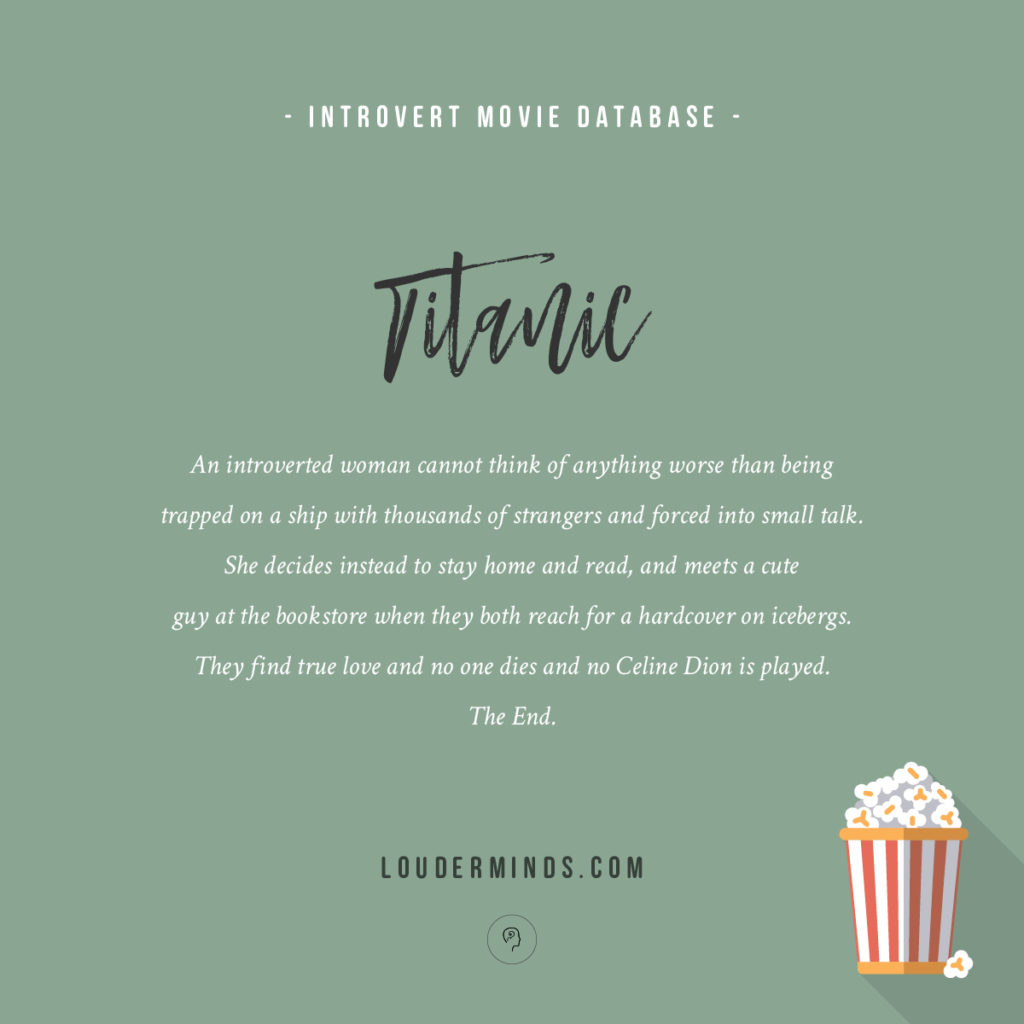One of my all-time favourite TV comedies is Friends. I’ve watched every episode at least twice, yeah okay three four times. Joey and Chandler’s friendship is in my top-5 screen relationships ever. And I still find the ‘camera’ line one of the funniest jokes on TV:
But Friends has also been a huge source of angst for me.
I first watched it before I knew about introversion, or that I myself was at the extreme end of the introvert spectrum. I would see these people hanging out all the time and yearn for that kind of friendship. I was 40% Monica (neat freak), 40% Chandler (sarcastic quipper) and 20% Ross (judgemental nerd), so I figured I was destined to be part of a similarly hilarious sextet.
Yet when I had the opportunity to spend time with my own friends, I often avoided it, preferring to stay home and be neat and quippy and nerdy all by myself. It made no sense, and it left me confused, frustrated, and unhappy.
I understand now that the group of friends I craved was not like Friends, it was Friends. Hanging out with them let me be with people without being with actual people. Which can be very comforting for an introvert.
But I also understand now that Friends was one of many places I saw extraverts as the norm, which led me to feel there was something intrinsically wrong with me.
Living In An Extravert World
In many ways, we are introverts living in an extravert world.
That sentence may evoke Madonna in your head, or perhaps The Police. Both are great choices but they do show your age. Personally I’m too young to get the references.
The point is, as introverts, who we are is often at odds with the model of successful, happy people we see in the world around us.
In TV and movies extraverted characters dominate, and it makes sense. Stories about introverts wouldn’t have the narrative drive, also known as anything visible happening, of stories about extraverts – with their adventures and their social lives and their conversations that take place outside their heads.
Although, wouldn’t you watch fantastic films such as the Introvert Titanic, from the INTROVERT Movie Database?

In social and old media too, extraverts are the ones we see making movies, gyrating in music videos, posing in selfies, giving interviews, being visible. Being audible.
The Ideal, Extraverted Self
Quiet author Susan Cain says,
In our society, the ideal self is bold, gregarious, and comfortable in the spotlight. We… admire the type of individual who’s comfortable “putting himself out there.” Our schools, workplaces, and religious institutions are designed for extroverts.
By definition the ‘ideal self’ that is visible to us is the one ‘putting himself out there’, comfortable in the spotlight.
Although there are many hugely successful introverts, they may be harder to see because the only spotlight they’re totally comfortable in is probably a really good reading lamp.

Being A Happy Introvert
The important thing, and one of the key messages of my blog, is that introverts and extraverts each find happiness in different ways.
We each need to do what feels right for us. Or perhaps more precisely, we need to do what stops us from feeling miserable and uncomfortable. For the extravert too little stimulation may feel like depression; for the introvert too much might feel like anxiety.
Research shows extraverts are more sensation-seeking, more tuned in to faces, and more inclined to wear eye-catching outfits – which means their more social, more out-there, more adventurous choices make sense.
So, as introverts, we need to not judge extraverts for their choices, nor ourselves for ours.
We need to nurture our own self-acceptance and enjoy happiness in our own way.
We need to be mindful that the ‘ideal self’ dominating much of TV, movies, and social media is not our ideal self.
Because how many cameras are on introverts like us? Usually, none.
[…] don’t have to be the gregarious and social being that’s often seen as the picture of a happy, well-adjusted person. Being a faux extrovert like this can leave you cranky and anxious. If this is where you are now, […]
[…] was my default strategy for many years before I understood that Future Me is an extravert and will happily fill my diary with commitments that I simply do not have the psychological […]
[…] if years of being introverts in an extravert world have made us think we should feel refreshed by going out or hanging with friends. Or doing the […]
[…] Plus we tend to conceptualise a happy person as gregarious, out-there, social. […]